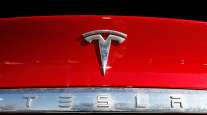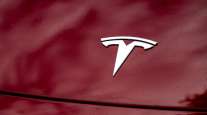Tesla’s Electric Commercial Truck Plan Expected to Cost Up to $3 Billion

Elon Musk's latest "master plan" for Tesla Motors Inc. to develop an electric commercial truck, a public bus, a pickup and systems to enable fully autonomous driving could cost $2 billion to $3 billion or more, experts and analysts said July 21.
Musk did not lay out a budget for his latest strategy, revealed on July 20, to expand Tesla into a broader range of vehicle markets as well as ride services and solar energy systems. The Tesla CEO also did not explain how the company planned to pay for the new products he envisioned.
However, analysts said it is likely Tesla will have to go back to investors for more capital to fund the plan, despite raising about $1.7 billion with a sale of shares in May.
"It's beyond us how much fundraising Tesla will need to carry out this master plan," Barclays Capital analyst Brian Johnson wrote in a research note.
Musk sketched out a vision for Tesla to become an integrated carbon-free energy enterprise offering products and services beyond electric cars and batteries.
Proposals to develop a compact pickup truck, a sport utility vehicle, electric semi-trucks and buses were seen as the most expensive elements of the plan.
The SUV and pickup could cost $500 million to $750 million each for components and production equipment, assuming they borrowed elements from the automaker's current vehicles, said Michael Tracy, a manufacturing expert with The Agile Group in Detroit.
Development and production of an electric semi-truck and bus could cost up to $500 million, according to Mark Wakefield of advisory firm AlixPartners.
A 4-year-old Salt Lake City startup, Nikola Motor Co, plans to unveil in December a working prototype of a natural gas/electric heavy-duty semi-trailer truck designed for road haulage.
RELATED: Nikola Motor promises prototype electric Class 8 truck this year
 Nikola Motor Co.
Nikola Motor Co.Nikola CEO Trevor Milton told Reuters he respects Musk, but “Tesla better be willing to round up $5 billion and be willing to spend it” to develop an electric semi-truck that can compete in the over-the-road market. The effort could take five to nine years, Milton said.
Nikola plans to begin producing its Nikola One trucks within 36 months and has 7,300 orders, he added.
Tesla would also be playing catch-up with established players in the heavy-truck market such as Daimler AG and Paccar Inc. Both are among the participants in a U.S. Department of Energy "Super Truck" program to build a more efficient heavy truck. Daimler said it has matched a $39.6 million federal grant as part of the program.
RELATED: Daimler challenges Tesla with its own electric-truck pledge
Analysts questioned whether a fully electric longhaul freight truck would be practical. "Imagine the battery needed to make a cross-country trip," UBS Securities analyst Colin Langan wrote in a report.
However, Morgan Stanley analyst Adam Jonas said "intelligent" trucks that use automated driving technology to enable vehicles to run around the clock and operate in closely packed "platoons" could cut shipping costs by 30% to 50% from current levels.
Another expensive element of Musk's strategy is developing technology to pilot fully self-driving cars, trucks and buses. Musk said he wants self-driving cars that are 10 times safer than a human driver. Analysts estimated that effort could consume $400 million to $800 million or more.
Musk and Tesla Chief Financial Officer Jason Wheeler told investors in May that Tesla planned to accelerate the launch of its more affordable Model 3 sedan, aiming to build 500,000 a year by 2018. They said capital spending for the coming year would rise 50% from previous forecasts to about $2.25 billion.
Following its share sale, Tesla said it had nearly $2.9 billion on hand, including cash drawn from its credit line. Musk has said he expects Tesla to stop burning cash by the end of this year. Analysts are skeptical Tesla can fund the previous plan to accelerate Model 3 production — and the new ventures — without taking on more debt or launching another share sale.
In delivering on its original master plan, Tesla "... dug a $4.2 billion hole on the financial side that has necessitated a series of fund raises totaling $6.2 billion," Barclays' Johnson said.




